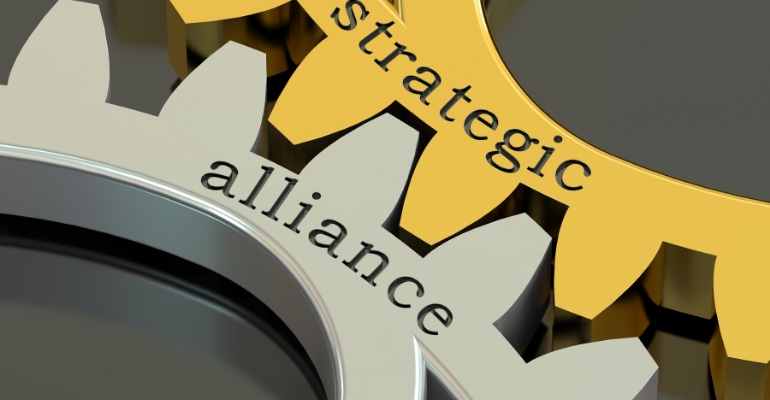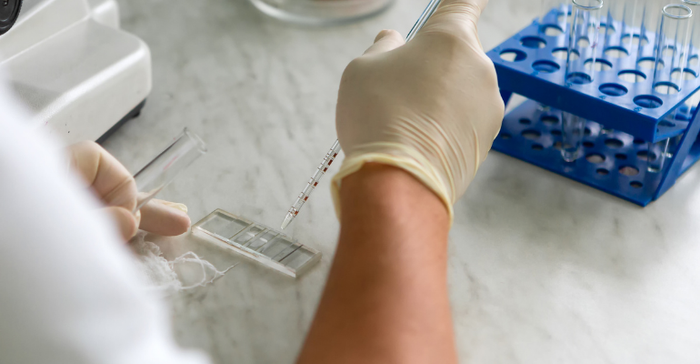July 4, 2021

The companion diagnostics market is on track to reach $6.8 billion by 2025 (from $3.7 billion in 2020), according to a Markets and Markets report , driven by the growing need for targeted therapy, the rising importance of personalized medicine, the increasing global incidence of cancer, and a raging demand for next-generation sequencing (NGS). So it's not surprising to see more and more alliances between pharmaceutical companies and diagnostics companies.
Recently, Hilden, Germany-based Qiagen formed a global strategic alliance with Kobe, Japan-based Sysmex for the development and commercialization of cancer companion diagnostics, which will leverage Qiagen's leadership in this field and Sysmex’s Plasma-Safe-SeqS technology for NGS.
The alliance aims to foster collaborations with pharmaceutical companies for the development of drug treatments for cancer and promote early clinical adoption of ultra-sensitive liquid biopsy companion diagnostics. Qiagen and Sysmex have a longstanding partnership, which, for example, provides the ipsogen JAK2 blood-cancer test in Japan. Cancer companion diagnostics products will be launched by Qiagen and Sysmex in various regions of the world.
Genetic analysis of tumors makes it possible to identify the genes responsible for the development and spread of a tumor and to target treatment accordingly. But the traditional analysis of solid tumors is constrained by their heterogeneity – varying concentrations of cancer cells, for example – and by sample availability. Liquid biopsy addresses these challenges and, in combination with sensitive NGS, allows the evaluation of patients at different points of their cancer treatment. It enables doctors to spot new anomalies and adjust treatments to make them more precise, and to develop new targeted therapies.
“Combining Qiagen's global reach with Sysmex’s NGS capabilities is an important milestone in advancing the use of NGS technologies in clinical decision-making and is a testament to our shared vision of using this powerful technology to improve outcomes for patients worldwide,” said Jean-Pascal Viola, senior vice president and head of the molecular diagnostics business area and corporate business development at Qiagen. “This alliance will add strong NGS capabilities to our regulatory and clinical expertise and commercialization, and help our partners in the pharmaceuticals industry by expanding our strong position and product offering in companion diagnostics. We look forward to this alliance creating significant benefits for our pharma partners – and ultimately for treating patients.”
Qiagen has carved out a leadership position for itself in the area of companion diagnostics that detect genetic abnormalities and guide clinical decision-making. The company's portfolio includes 10 polymerase chain reaction-based (PCR) companion diagnostic products that are FDA approved. The German company also has master collaboration agreements with more than 25 companies to develop and commercialize companion diagnostics for drugs in development – a pipeline of potential products to advance precision medicine and benefit patients. Qiagen has a 15-year partnership with Illumina to broaden the use of NGS-based companion and other in-vitro diagnostics kits in patient management.
“The alliance with Qiagen promises Sysmex a great application for Sysmex’s Plasma-Safe-SeqS technology, which can detect gene mutations of cancer in blood with ultra-high sensitivity. We believe that QIAGEN is the best for Sysmex to expand this globally,” said Hiroshi Kanda, a member of the managing board, a senior executive officer, and head of corporate business development at Sysmex.

What Thermo Fisher Deal?
MD+DI readers may recall that Thermo Fisher made a bid in March 2020 — right as COVID-19 was quickly spreading worldwide — to acquire Qiagen. In August 2020, however, Waltham, MA-based Thermo Fisher Scientific terminated the deal. That decision came about a month after Thermo Fisher had raised the bid from $11.5 billion to $12.5 billion because a hedge fund with a stake in Qiagen pushed for a better deal.
The company walked away after Qiagen’s earnings were strengthened by COVID-19 testing offerings, which caused the company’s shareholders to hold on a bit tighter. Qiagen was expected to pay Thermo Fisher Scientific an expense reimbursement payment of $95 million in accordance with the acquisition agreement.
About the Author(s)
You May Also Like


